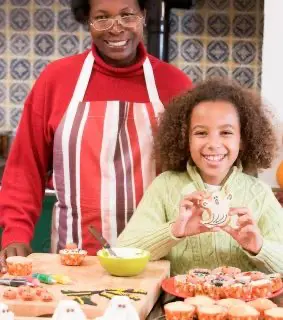Recognizing Dyslexia - Ensuring our Children a Better Future
by Jacek Chojnowski, M.D.
Ann is a 40 year-old mother. She has a 10-year old daughter name Kate.
Ann was raised in neither wealth nor a clever family. As she remembers, her mother was not clever and worked very hard. Ann is doing pretty well, though during her school-time she had difficulties. Nobody helped her in those days. Her family did not have enough time.
She didn't blame anybody for that, she considers her childhood happy.
She always had difficulties with spelling and writing. The words were sometimes spelled in the way that she would not expect them to be spelled, if our spelling system were rational, for example, please (pleeze), knock (nock), does (dus). She experienced confusion with directional words, e.g. left/right, up/down, in/out. She would write letters or numbers backwards. She developed a very poor self -image. There were no programs to help her in those days. After school, she had problems finding a job. When she finally found job it was very low pay.
Her daughter Kate also has poor concentration and problems understanding what she has read. For some time Ann didn't think it very impotant. She thought that her child was bored or didn't spend enough time to learn. Because of her need to work many hours she had little time to spend with daughter to help her.
Many parents are overworked and tired; we must earn money, and so on. But we must realize that our children are suffering sometimes and need our help even when they say they don't want it.
One person is clever; the other can be not so clever. Ann always thinks about herself and her daughter. Kate has difficulties with math -sequencing - getting things in the right order. She feels like everyone is staring at her, and laughing at her.
Her self-esteem suffers and she started to think of herself as stupid.
It is very important for your future how you think about yourself.
Kate was very bright when she would talk, often she refused to go to school.
Ann likes to talk with her daughter, and spend some time with her. Her daughter reminds her of herself. She noticed differences between Kate's ability and her actual achievements, and started to look for help. It appears that Kate has dyslexia.
Dyslexia is a learning difficulty affecting a person's ability to deal with text and sometimes numbers. It is permanent disability that needs continuous support through education. A dyslexic child's strengths are in areas such as creative work or physical co-ordination. In a class of 25 children two of them may be dyslexics. You should suspect dyslexia in a child who has difficulties with math, writing and spelling, especially when the child appears to be otherwise normal in their conversation.
How about Us?
Do we have time to speak to our children, find out about their self-esteem?
Do we belive nothing is wrong because we were similar in their age?
Does Ann's daughter deserve a better future than her mother? Do our children have a chance for better future? The child (a dyslexic one) who is given proper support is perfectly able to go on to achieve higher degrees at a university and pursue successful careers. Help your child to discover her/his natural strength and build her/his future.


